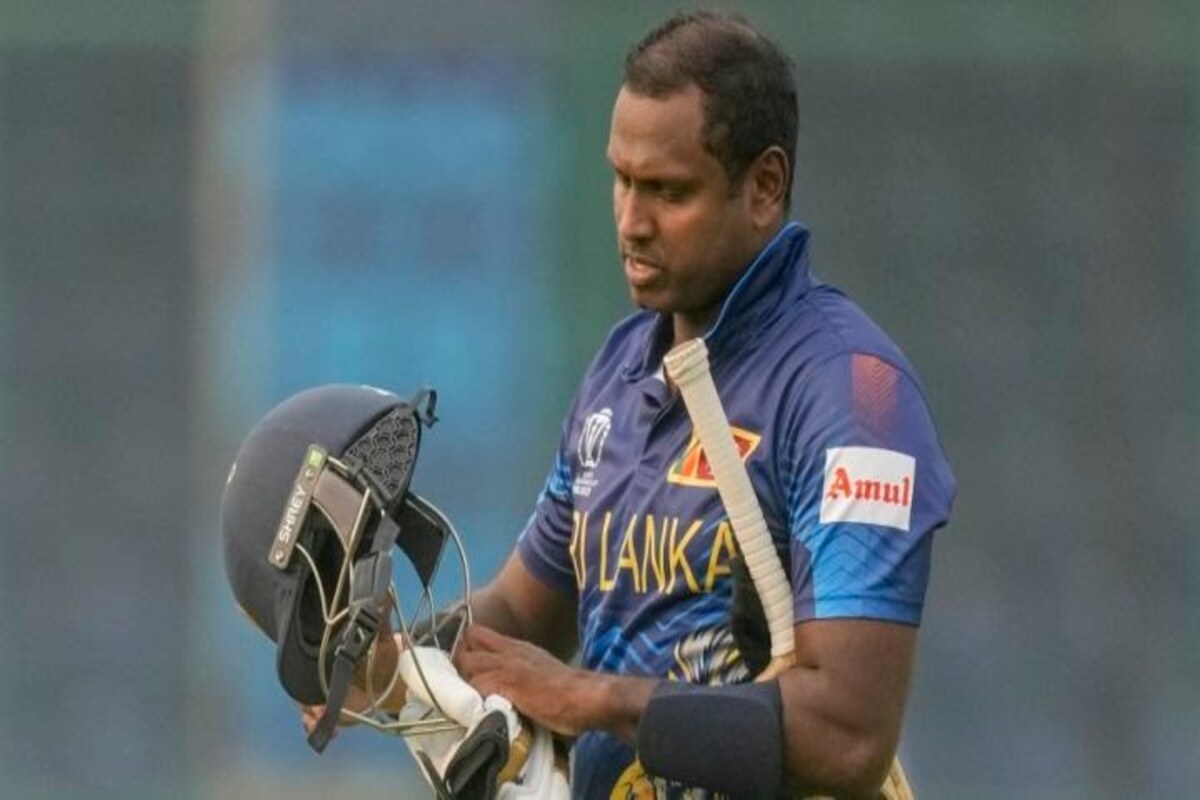Angelo Mathews’ century puts Sri Lanka ahead on Day 1 of 2nd Test against England
Matthews anchored strong partnerships after that to help Sri Lanka edge ahead at the end of the day. Matthews first put up a 69-run stand with Lahiru Thirmanne
Mathews flung his helmet in anger and frustration after umpire Marais Erasmuss upheld the appeal made by Bangladesh Skipper Shakib ul Hassan .

Sri Lankan allrounder Angelo Mathews wrote a new script as he became the first batter in the history of international cricket to be dismissed ‘timed out’
Mathews flung his helmet in anger and frustration after umpire Marais Erasmuss upheld the appeal made by Bangladesh Skipper Shakib ul Hassan .
After Shakib al-Hasan dismissed Sadeera Samarawickrama, Bangladesh skipper then appealed to have Mathews timed out after an issue with the strap on the veteran’s helmet stopped him from facing him up as he called for a replacement.
Advertisement
Mathews furiously argued with Shakib, before being given his marching orders from the umpires. Sri Lanka coach Chris Silverwood was also non-plussed and appeared to storm off in the direction of the third umpire’s room.
According to Sri Lankan commentator Russel Arnold “A first in international cricket,”. Mathews did not bring the correct helmet and therefore asked the substitute fielder to bring his helmet. Bangladesh appealed for Timed Out and the umpires had no other choice but to accept the appeal. Until and unless Bangladesh withdrew their appeal, Mathews had to be given out. That’s what happened.
The Cricket World Cup 2023 playing conditions pertaining to “timed out” reads thus:
40.1.1 After the fall of a wicket or the retirement of a batter, the incoming batter must, unless Time has been called, be ready to receive the ball, or for the other batter to be ready to receive the next ball within 2 minutes of the dismissal or retirement. If this requirement is not met, the incoming batter will be out, Timed out.
With Mathews taking more than three minutes to face his first ball, he had to be sent back to the pavilion following the appeal.
It was the first time in international cricket, men’s or women’s, that a batter is dismissed according to the “timed out” law.
Those rules supersede the Marylebone Cricket Club’s Laws of Cricket, which give batters three minutes to face up.
The fourth official, Adrian Holdstock, explained the dismissal and the laws pertaining to it during the innings break.
“The ICC World Cup playing conditions supersede the MCC laws of cricket,” Holdstock explained.
“We have certain protocols and the TV umpire monitors the two minutes. He will then relay the message through to the on-field umpires and in the instance this afternoon, the batter wasn’t ready to receive the ball within those two minutes even before the strap, what became an issue for him, [broke].”
When asked whether equipment failure could have been considered, Holdstock explained further that the batter had to ensure all of it was proper before stepping in.
“I think you need to make sure that you have all your equipment in place in order to make sure you get here because you actually have to be ready to receive the ball in within two minutes, not ready to prepare or take your guard. So technically you should be there within maybe 15 seconds to make sure all those things are in place before you actually receive the ball.”
Advertisement